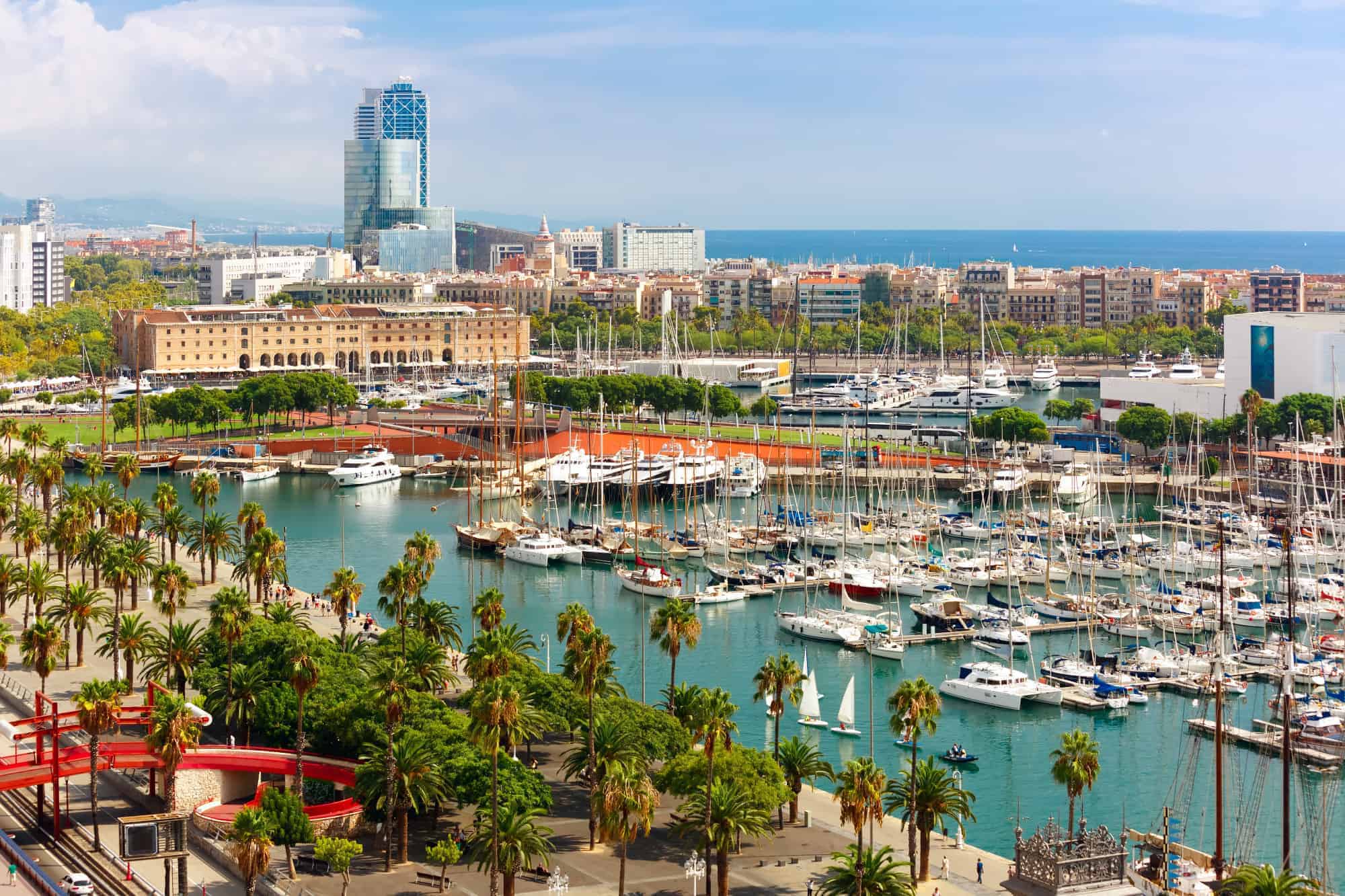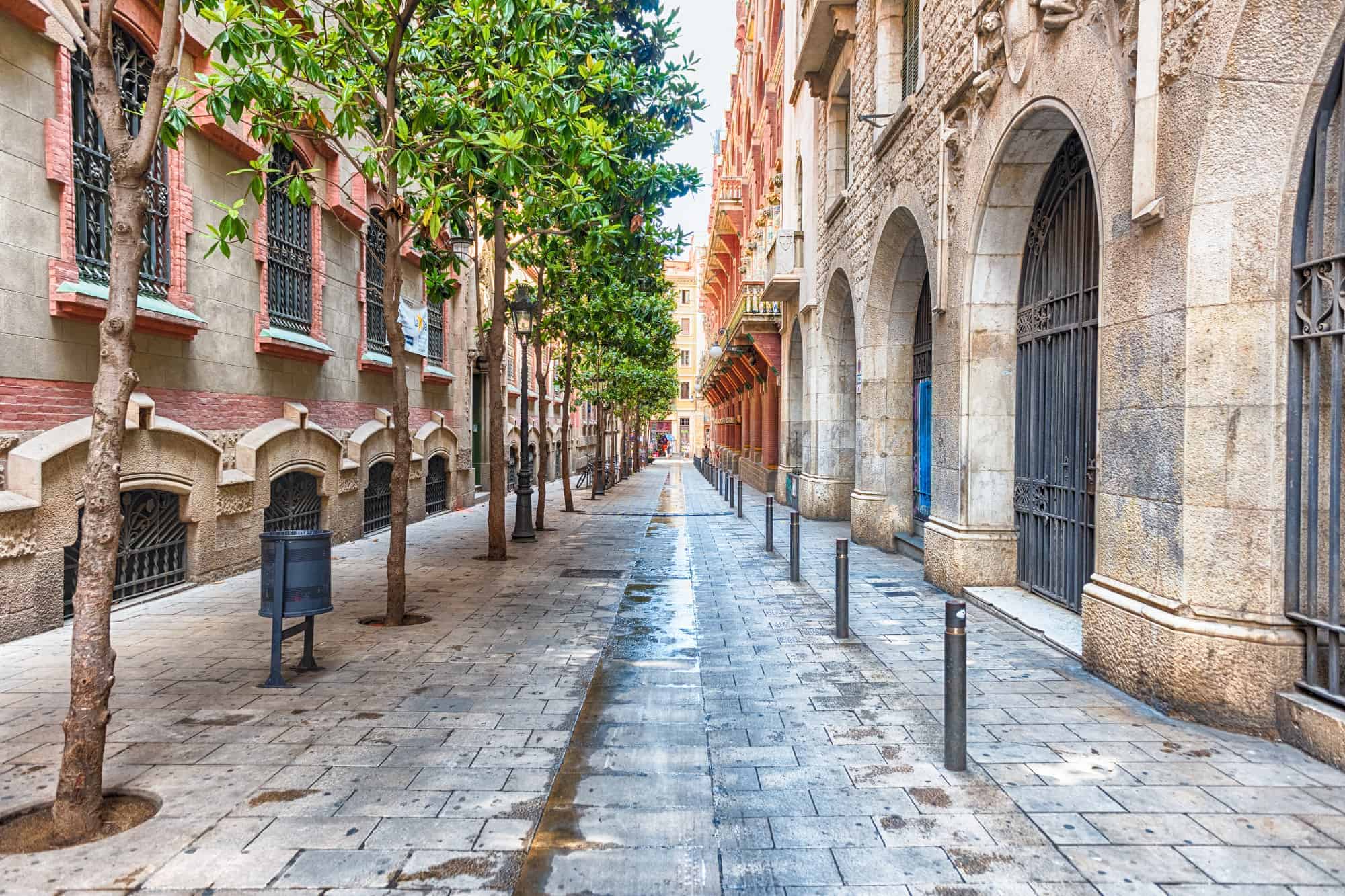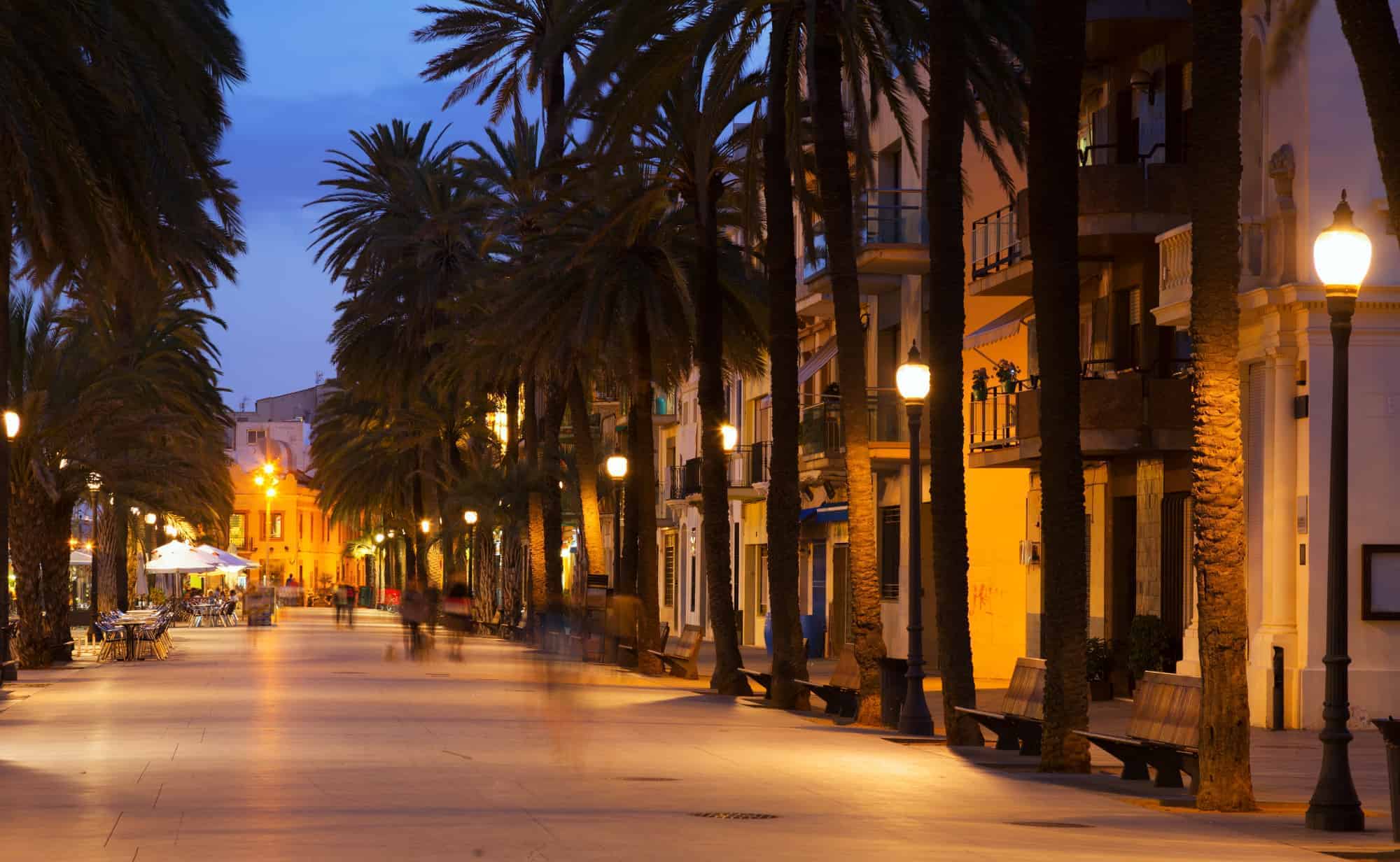If you’re thinking of living in Barcelona, whether the province or the city itself, you probably have plenty of questions. Topics such as cost of living, local communities, and healthcare are always top of the list for expats looking to move to a new place.
In this guide, we’ll cover all the information you might need about living in Barcelona, one of Spain’s most beloved cities. We’ll look at the cost of living, the best places to settle down, and other important information to get you on the right path.
Secure Peace of Mind with Best-Value International Health Coverage
International Citizens Insurance provide free, no-obligation quotes from the leading international health insurance providers with plans tailored to meet your needs. Trusted by thousands of expats worldwide.
Is Barcelona a good place to live?
Barcelona is a city big on culture and is full of interesting activities, great restaurants, and anything else you might want for a vibrant city.

Of course, the main spoken language in the city is Spanish. However, as Barcelona is a bustling tourist city, plenty of people speak English too.
This is less common in satellite towns and will vary depending on the level of tourist activity. Learning even some basic conversational Spanish will never hurt, though!
Barcelona has all the amenities you could need for a perfect retirement location. It has plenty of options for food, both supermarkets and open-air markets, access to healthcare, and its own airport with good international links.
Along with the amazing food, scenery, and lower cost of living, it also has great international connections for visiting friends and family.
What’s more, Barcelona has a vibrant expat community that’ll help you to settle in. The city itself welcomes new residents, but there are plenty of expat groups that you can join, both in the city and surrounding towns.
Consider looking around on Facebook in advance for some expat groups; they can be a great source of insider information about what the lifestyle is really like.
Is Barcelona safe?
As a major city, Barcelona sees greater levels of crime than the smaller surrounding towns. Its status as a major tourist destination obviously impacts crime rates, too, with tourists potentially attracting muggers or pickpockets.
However, Barcelona has lower crime rates than London. It has low incident rates for violent crime, race- and gender-related crime, and drug-related crime.
Even rates for burglary and theft are still considerably lower than in London. In short, if you’re happy to live in London or any other big city in the UK, then you shouldn’t have any issues living in Barcelona.
If you do have concerns about crime rates, consider living in one of the smaller towns in the Province of Barcelona discussed below.
What are the pros and cons of living in Barcelona?
Like any other place on Earth, Barcelona has its positive and negative points. Here’s a roundup of the main pros and cons of living in Barcelona.
The pros of living in Barcelona
1. It’s a visual feast for the eyes
Barcelona has some incredible architecture, from Gaudi’s contributions to the incredible Gothic Quarter. The city is beautiful. Its historic streets have managed to adapt themselves to current times while preserving and cherishing the past.
There are also plenty of green spaces within the city that make a nice change from the paved streets.
2. A paradise for foodies

Spanish food is world-renowned, and where better to experience it than Barcelona? Whether you go for tapas bars, open-air markets, or buzzing international restaurants, Barcelona’s food scene has plenty to offer.
Combine this with the wealth of bars (serving some exquisite wine), and you’ll find a pretty amazing place to live.
3. Great weather
Like much of continental Europe, Barcelona has weather that most people from further north would love. Winter temperatures generally don’t dip lower than 13C, and in the summer, they may peak at 34C. Due to its proximity to the sea, the city enjoys a more regulated climate than inland locations.
4. Amazing nature
Barcelona itself has a wealth of beaches, which get quite busy in the summer. However, you’re also not too far away from locations such as Montseny Natural Park, Montserrat Mountain, or the Ebro Delta. If you enjoy spending time amongst nature, you could do a lot worse than this.
The cons of living in Barcelona
1. The place gets a bit overwhelmed with tourists
Barcelona is known internationally as a tourist hotspot. While this is great for the economy, it might not be great for your retirement lifestyle.
Obviously, this is only a problem in the summer months, as tourism dies off in the winter. However, by living in one of the local towns, you can access the city and avoid the worst of the tourism boom.
2. The cost of living is high
While the cost of living in Barcelona is lower than in the UK or the USA, it is more expensive than in other Spanish cities. Again, this is because of the nature of the city, and generally, you get what you pay for, but you can avoid it by buying property outside the city.
3. Public transport is not the best
Public transport in Barcelona really isn’t great. Buses and taxis take a while because there’s lots of road traffic, and the metro is quite old.
On the positive side, taxis and Uber aren’t particularly expensive and are definitely more convenient than owning your own car.
However, if you feel you need a car and planning to buy one, find more information on Spanish driving regulations and the car registration process in our guide, Sorting Out A Car And Driving In Spain.
4. You need more time and patience to get simple things done
Life is slower in Spain in general. This isn’t really a con when you’re retired, but everything takes longer in Barcelona.
Like much of Europe, shops shut in the middle of the day, and many restaurants and attractions are shut on Sundays and Mondays.
Similarly, things like building work are done at their own pace. However, once you get used to it, it’s really not much of a negative.
Dealing with all the paperwork while settling down can drive expats crazy. Sorting out Spanish residency, bank accounts, registration with a doctor, taxes, etc., requires time and patience.
If the prospect of doing all this paperwork on your own terrifies you, you can always recruit a local helper - gestor. Find out more in our guide to Using Gestorias In Spain To Help With Your Paperwork.
Is living in Barcelona expensive?
Barcelona has a higher cost of living than other big Spanish cities, but it’s still considerably lower than the cost of living in the UK or the USA. Its cost of living is impacted by tourism and the expat community, along with it being a major administrative hub in Catalonia.

The cost of renting an apartment in the city center is around €1300 a month. Outside of the city center, this drops to €900 for a 1-bedroom apartment.
If you are planning to rent, read our Renting In Spain guide first to make sure you know what to expect and how to protect yourself as a tenant.
The price per square meter of property in Barcelona is around €4,600 (£4,180). This price drops when you leave the city center and is considerably lower in the smaller satellite towns.
To understand how the property purchasing process works in Spain and how to avoid possible pitfalls, read our Buying A Property In Spain guide.
Utilities are generally affordable. Food prices vary massively depending on whether they are local or international products, but you’ll find the prices in open-air markets to be much lower.
How much do I need to retire in Barcelona?
To qualify for a long-term residency visa, you need to show a certain level of income. You can find all the details in our Spain: Residency And Paperwork guide.
To live a comfortable life in Barcelona, you would need a minimum annual income of around €25,000 if you’re going to rent.
If you have the money to buy property, you’ll need less to live a comfortable lifestyle.
If this sounds like an unreasonable amount of money, living in a local town will massively reduce your outgoings. However, you’ll be impacted by factors such as less access to amenities and slower Internet speed.
Where are the best places to live in Barcelona?
1. La Ribera
La Ribera was traditionally home to the wealthiest inhabitants but has recently been transformed into a great place for expats to call home.
The area is famous for its restaurants, wine bars, cocktail lounges, dance clubs, and designer boutiques.
There are plenty of modern apartments hidden inside classic buildings, and its central location gives you access to the whole city.
2. The Eixample

This area was purpose-built in the 19th century and is characterized by wide roads and light, spacious apartments. It has quite a vibrant nightlife, which will either be a big pro or con for expats, depending on your lifestyle.
It's one of the safest districts to live in Barcelona. Living there, you will be within walking distance of the iconic square Plaça de Catalunya, surrounded by stylish boutiques, bars, and restaurants.
3. La Zona Alta
La Zona Alta is located in the northwest of Barcelona and is away from tourist hotspots, yet it is still within easy reach of all the necessary amenities.
It is considered one of Barcelona’s most privileged residential areas, where elegant mansions and grand apartment blocks frame peaceful leafy avenues.
Zona Alta is made up of Barcelona’s most exclusive neighborhoods, including Sarrià-Sant Gervasi, El Putxet, Les Corts, Tres Torres, Turó Park, and the prestigious Pedralbes area.
It’s also home to some of the leading international schools in the city. As a result, however, its property prices are higher than in other districts.
Where are the best places to live near Barcelona?
While Barcelona is an incredible city, many expats want more of a sense of local community but still want access to all a city offers. If that matches your needs, consider one of the local towns instead.
1. Mataro
Mataro is located on the coast and is about 45 minutes away from Barcelona by car. It’s ideal for those seeking an active lifestyle, as it has great swimming locations and access to tennis, football, and rock climbing facilities. It has a gorgeous sandy beach, traditional markets, and the nearby Collserola nature park.
2. Sitges

Sitges is another amazing coastal town and is about 50 minutes away from Barcelona. However, its popularity with expats is on the rise, which is reflected in its property prices. That said, it has some amazing restaurants and beaches that are more than make up for this.
3. Badalona
Badalona is a peaceful town, ideal for those wanting a quieter retirement. It has plenty of entertainment and cultural sites and is only 35 minutes away from Barcelona by car.
4. Collserola
Collserola is perfect for those who want to live close to nature. It has a national park, mountains, and plenty of outdoor spaces. It’s ideal for those wanting a more active, outdoor lifestyle and is around 30 minutes away from Barcelona.
Buying a property versus renting in Barcelona
For many expats looking to retire abroad, there often isn’t much of a discussion about buying or renting. If you’re looking for a primary retirement location, buying obviously makes much more sense.

However, if you have the freedom to do so, renting in various locations can be a great way of deciding where to settle down. Depending on the contract and agency, you can either choose between short-term rents of 3 to 11 months or long-term rents of between 1 and 5 years.
There are major disparities in the city’s rent prices depending on where you look. Central apartments can be around €1,700 a month, whereas going slightly further afield, they can be around €1,200 a month.
If you have the money, buying is a better option. Again, prices vary, as an apartment in Barcelona will cost between €3,000 and €4,600 per square meter. In one of the smaller towns, such as Badalona, you could be looking at €2,400 per square meter.
The decision ultimately depends on your retirement goals and lifestyle choices. Purchasing property is a good investment, as prices increase, meaning it’ll almost always be a sound investment. There's also an opportunity to invest in property and get Spanish residency as a bonus via a Golden Visa.
If you have questions or need more information about your Golden Visa investment options in the area, contact us via our Residency Page. We will be happy to help.
Is healthcare free in Barcelona?
Yes, public healthcare is free for eligible residents.
To have free access to public healthcare in Barcelona, you need a Targeta Sanitaria Individual or TSI (Individual Healthcare Card). To obtain a TSI, you must be a Spanish resident and pay social security contributions if you’re not retired.
More details on public and private healthcare in our Health Insurance In Spain Guide For Expats
However, many expats prefer to go private or even use an international health insurance plan that covers them in several countries. To make sure you get the best value for money, compare international health insurance options from various providers to find the best deal.
Living in Barcelona – summary
Barcelona has plenty on offer for expats looking to retire abroad. Its biggest pro – it being a tourism hotspot – is also a big con for many. While it means lots of the locals speak English, not many expats want to live in a bustling tourist city.
However, many of the smaller local towns are ideal for overcoming this. Not only will it be easier to integrate into a more authentic local community, but house prices and the cost of living are also lower.
Generally speaking, Barcelona is a great location for living. If you plan intelligently and spend some time looking around, it’ll be really easy to overcome any objectives you might have about moving to the city.
Other popular locations in Spain to consider:
- The Insider Guide To Living In Malaga As An Expat
- 10 Must-Know Facts About Living In Granada, Spain
- The Essential Guide To Living In Valencia As An Expat
- Living In Marbella – The Pros & Cons For Expats
- The Advantages And Disadvantages Of Living In Madrid
You might find helpful:
- Living In Spain As An Expat – the ultimate relocation guide full of practical information and tips on moving to Spain, from the pros and cons to visas and residency, to the cost of living, healthcare, banking, and more.
- Best Places To Live In Spain – a detailed overview of the best and most popular expat locations in Spain.
- Haven’t found what you were looking for? Contact us or comment below with your question; we’ll do our best to help.
Secure Peace of Mind with Best-Value International Health Coverage
International Citizens Insurance provide free, no-obligation quotes from the leading international health insurance providers with plans tailored to meet your needs. Trusted by thousands of expats worldwide.




